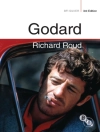Research shows that, while people around the world consistently nominate television as their most important news source, much of the content of news bulletins is lost to viewers within moments. In response, Barrie Gunter argues that this can be explained by the way in which televised news is written, packaged and presented.
Table of Content
Preface 1. How Much Do We Value TV News? 2. Do We Remember Much from TV News? 3. How Does TV Compare with Other Media? 4. Are Some TV News Stories Easier to Remember? 5. Does TV News Tell Stories in a Memorable Way? 6. Do Pictures Help or Hinder Our News Memories? 7. Is TV News Presented Too Fast? 8. Is the News on TV Packaged Helpfully? 9. Do We Need to Receive TV News More than Once? 10. Can TV News be Entertaining and Memorable? References Index
About the author
Barrie Gunter is Professor of Mass Communication in the Department of Media and Communication, University of Leicester, UK, where he was also head of Department from 2005 to 2012. He is a psychologist by training and worked in the broadcasting sector for 15 years before moving into the academic world. He has published nearly 60 books and over 300 papers, chapters and technical reports on media, marketing and psychology topics.












